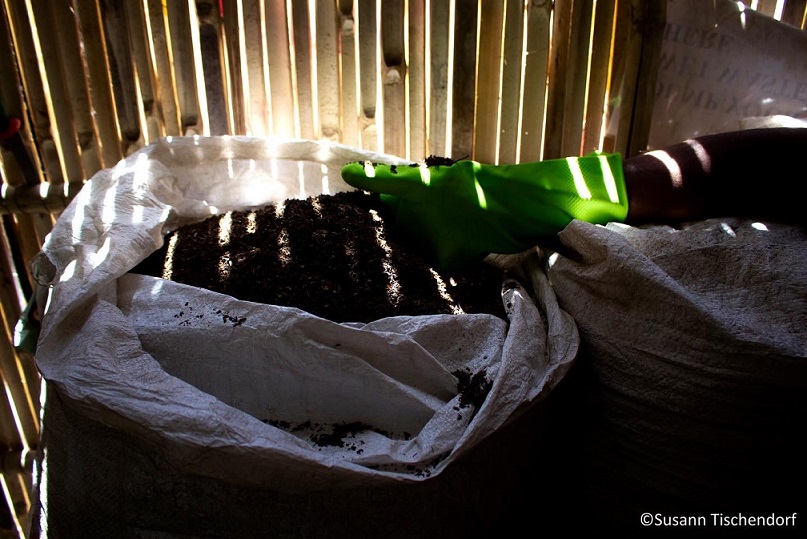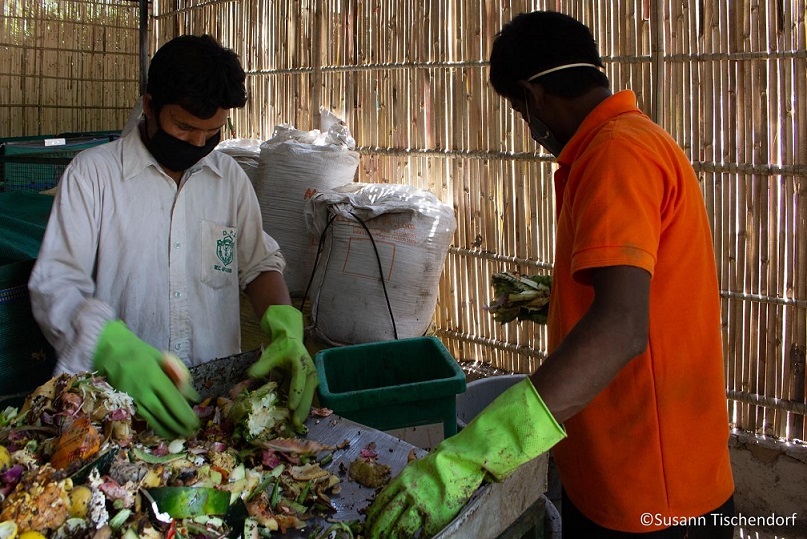In just about a month, the international community will gather at COP26, the 2021 United Nations Climate Change Conference, to further accelerate global action towards climate change. The aim is to “to build back better, and greener”, states Alok Sharma, COP President. According to him, this is necessary because, like the Covid-19 pandemic, climate change is disrupting the global economy and ultimately threatens life on earth.
Just last week, at Business Call to Action’s Annual Forum at the 76th Session of the UN General Assembly, participants highlighted that inclusive business models “can play a key role in [building] more inclusive, resilient, and equitable societies for the future.” They furthermore made clear that inclusive businesses can fulfill social and environmental goals at the same time and hence are crucial to spur green growth initiatives for low-income communities, who are the most affected by Covid-19.
In my opinion, this edition of CLUED-iN is therefore not only extraordinarily timely, it also gives hands-on insights on how exactly inclusive businesses are already living up to these climate and social impact expectations. Beyond that, it points out what is needed to help other entrepreneurs to step up.
But before diving into the topic more, let me set something straight here. I am not a climate change expert and although I know the field of inclusive business quite well, there are plenty of researchers and practitioners out there that clearly do know more about this important topic than I do. However, through my professional background, I do know a lot about the lives of local and low-income communities – and they are at the core of every inclusive business initiative.
What I observed in numerous visual storytelling projects I worked on globally in the past, is the huge dedication of community members to their environment, and beyond that the fact that we are incredibly interconnected as people. In fact, there is no need to even speak the same language when you care about the challenges someone who matters to you is facing. Visual storytelling builds on this power and hence engages even those who by nature do not seek the degree of interconnectivity I described above. It simply brings them closer to our shared human experience. And climate change is and will be such a huge part of it. “Climate change is already affecting every inhabited region across the globe, with human influence contributing to many observed changes in weather and climate extremes,” is one of the key facts of the latest Intergovernmental Panel on Climate Change (IPCC) report.
But let’s go back to inclusive business. This edition of CLUED-iN so clearly highlights the crucial role it plays “in both addressing climate change and creating a positive impact on vulnerable communities,” as Alexandra Harris, Editor-in-Chief of the online magazine, expresses it so very well in her feature story. She adds, “While the world is reaching a tipping point, it is often underprivileged communities in developing countries that face the highest level of climate risk.”
This so strongly reminds me of a zero waste management project I was documenting in a local community in India while being on assignment for the Inclusive Business Action Network. I was amazed by the dedication of all community members to waste reduction. Nearby, however, another community that did not have such a project was greatly struggling with plastic waste pollution. People had to collect and sort plastic in the heat of the day without any protection.
The below images provide a glimpse into the zero waste management project and the community that does not have an effective approach to recycling yet.




The example highlights that inclusive business projects do not only contribute to environmental initiatives but also help improve the lives of low-income communities. In fact, many of the inclusive business entrepreneurs I spoke to over the past years strongly care about the living situation of others and many highlight that empathy is needed to be successful.
So have a look at the inspiring examples in this edition of CLUED-iN that show how business can reach climate goals while building community resilience, among others via climate-smart technologies, climate neutral production methods, or zero waste and solar innovations. Get inspired by learning how local communities integrate tourism in a way that provides livelihoods and protects nature. And learn about the adaptation and resilience planning methods of local communities, as well as new financing that helps scale them in a profitable way.
But just like every local community initiative also strongly depends on the commitment of every community member, climate change will hardly be mitigated if we are not all doing our part in contributing to positive change. Hence, let the care shown by local communities in this edition of CLUED-iN inspire us to be even more conscientious about the steps we take in our day-to-day lives when it comes to building back better and greener.
My impactful contribution is in visual storytelling, for example, by shedding a light on the dedicated work of local communities and inclusive business entrepreneurs in finding innovative solutions to the global environmental impacts of plastic waste production and pollution (see recent Impact Stories here).
What about you? Are you actively contributing, maybe even by doing what you are truly passionate about? Even if the honest answer might be no at this point, it might make you think about what you can do. Trust me, there is so much you can do! You will see that it will have ripple effects on those around you. For example, help spread the word about what inspires you in this edition of CLUED-iN! Let me end with a quote by Theodore Roosevelt I greatly like that I think fits this topic so well: “Nobody cares how much you know until they know how much you care.”
